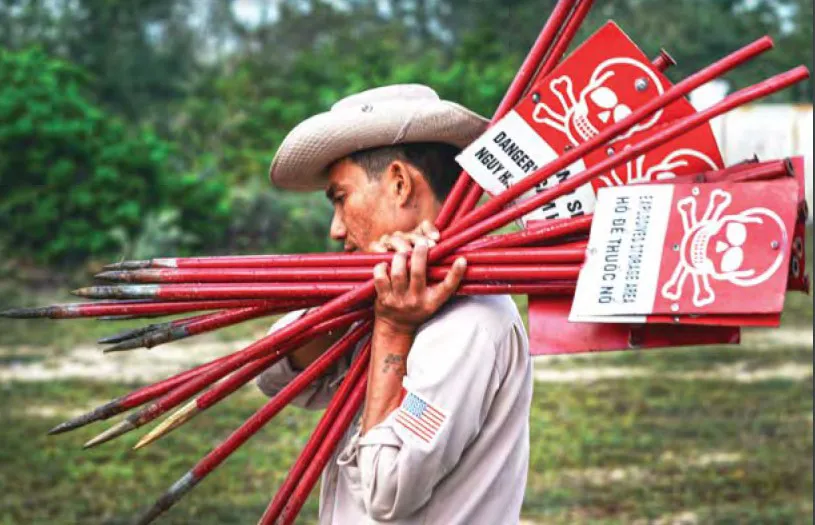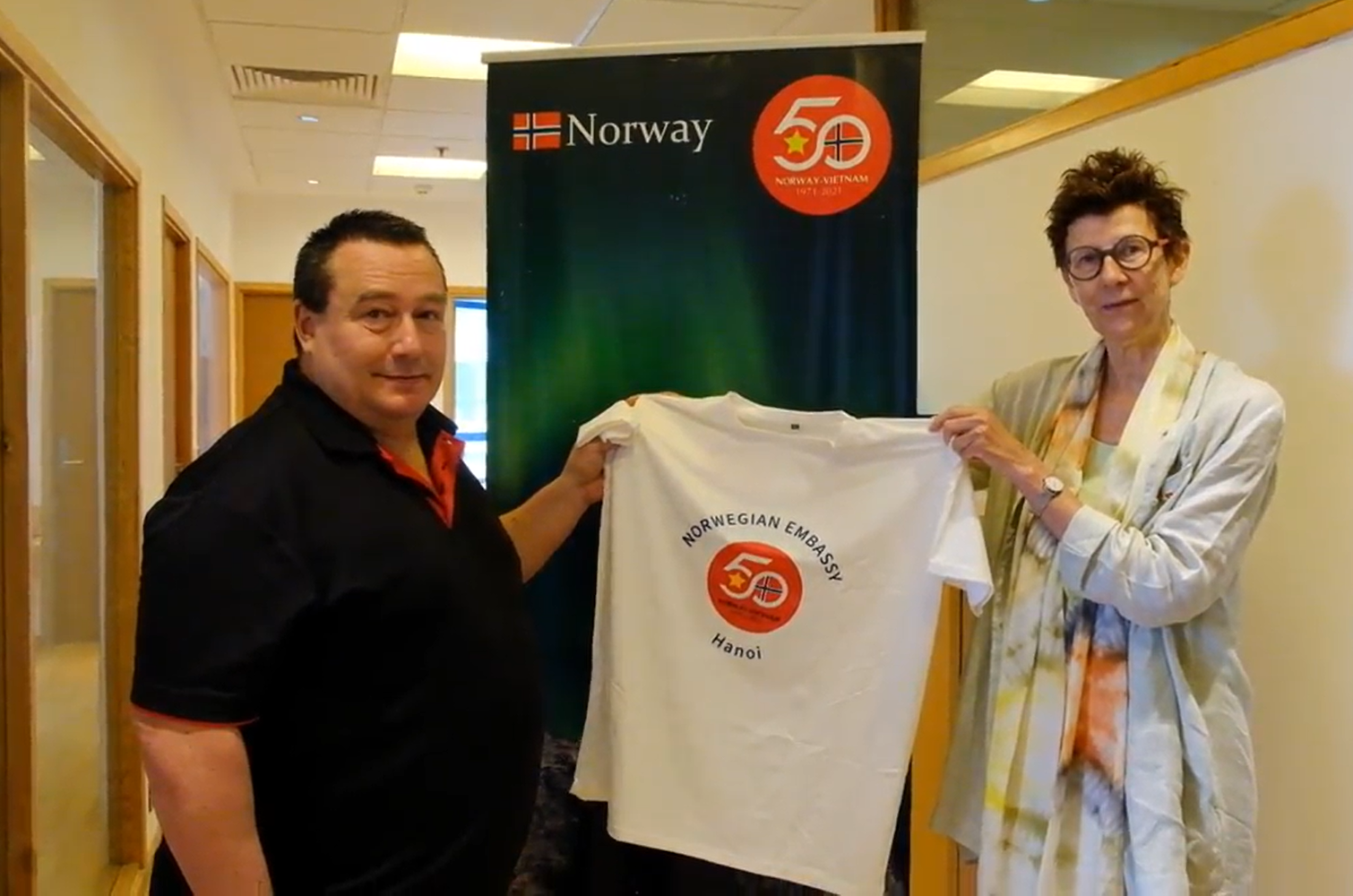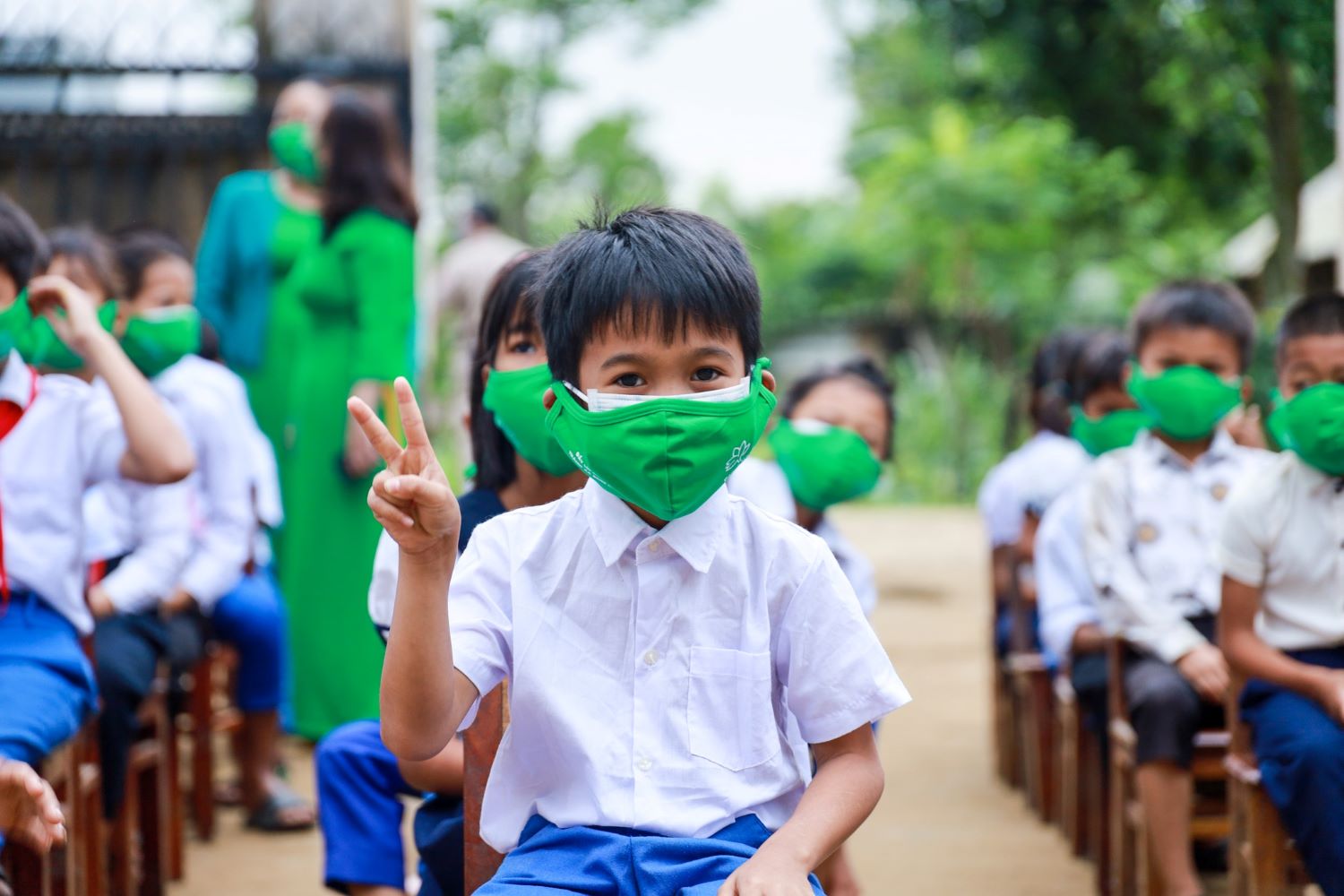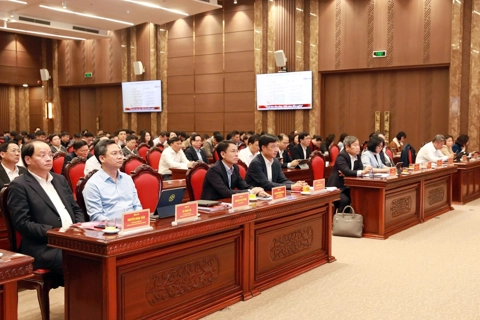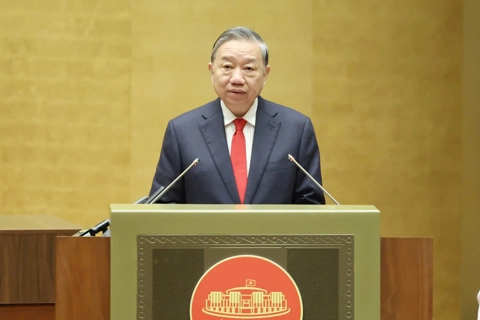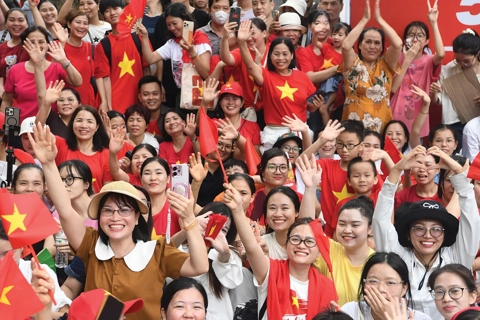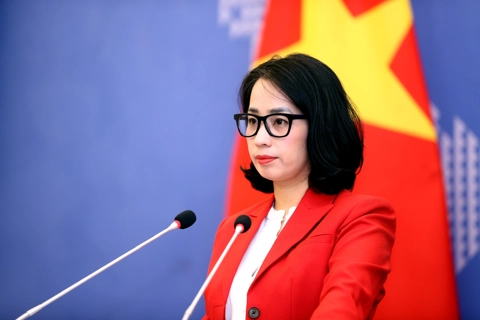War explosive remnants kill 40,000 people in Vietnam since 1975
Vietnam is believed to take years for unexploded ordnance clearance, which is expected to cost international donors an amount of US$150 million.
At least 40,000 people lost their lives and 60,000 others got wounded in Vietnam by explosive remnants of war (ERW) since the end of the war in 1975.
| A staff of the UK-based Mine Advisory Group (MAG) in Vietnam. Photo: MAG |
About 60% of the total casualties are reported in the central and Central Highlands provinces of Quang Tri, Quang Binh, Quang Ngai, Binh Dinh, Thua Thien-Hue, Nghe An, Ha Tinh, Gia Lai, and Kon Tum.
In addition, more than seven million people were disabled by unexploded ordnance (UXO) and agent orange/dioxin over nearly five decades, Colonel Nguyen Hanh Phuc, Deputy Director of the Vietnam National Mine Action Center (VNMAC) shared on the occasion of the United Nation’s International Day for Mine Awareness and Assistance in Mine Action 2022 which is observed on April 4.
Notably, explosive war remnants are recorded in all 63 cities and provinces nationwide with 5.6 million hectares of land. Roughly 17.71% of the country’s total land area is contaminated with unexploded ordnance (UXO).
In the time to come, Vietnam needs an estimated amount of VND3.45 trillion (US$150 million) from international donors, or 16% of the total state budget assignation for the cause, Phuc told local media.
The country plans to clean up 75,000 hectares of UXO-contaminated land per year through 2025 in order to have no victims of ERW.
| Norwegian Ambassador to Vietnam Grete Løchen (R) and Norwegian People's Aid (NPA)'s country director Jan Erik Støa. Photo: Embassy of Norway in Hanoi |
International support
In 2010, Vietnam launched the National Mine Action Program (Program 504) with the aim of mobilizing national and international resources to minimize hazards and create an environment for socio-economic development free from the impact of unexploded ordnance.
Between 2010 and 2020, the program helped remove nearly 500,000 hectares of contaminated land. The decade-long drive cost VND12.6 trillion (US$548 million), including VND10 trillion ($437 million) from the state coffer and the remaining are non-refundable aid from foreign donors including UNDP, UNICEF, the UK-based Mine Advisory Group (MAG), the US-based PeaceTrees and Clear Path International (CPI), the Norwegian People’s Aid (NPA), and countries like the US, Japan, South Korea, the UK, Norway, Germany, Australia, and Russia.
Among the donors, Norway is an active one supporting the cause in Vietnam simply for the need to “protect people from the effects of the deadly weapons of cluster munitions and mines” as they all know that “it is the civilian population, particularly vulnerable groups such as women and children who are the main victims of these weapons, and in many years after the conflict has ended,” shared by Norwegian Ambassador to Vietnam Grete Løchen.
Norway has been supporting mine action for 25 years, and we are currently funding mine action in 20 countries and areas. Norway is one of the five largest donors to efforts to clear mines and cluster munitions, together with the US, Germany, the EU and Japan, she said.
In 2021 alone, Norway provided at least NOK300 million (US$35 million) to global mine action. This country’s Ministry of Foreign Affairs works in direct partnership with mine clearance operators such as NPA, MAG, Halo Trust who have vast experience from all parts of the world and have also been at the forefront of developing international standards for survey and clearance for the whole sector.
“We are happy to see Norwegian People’s Aid (NPA) present and active in Vietnam since 2008 to support the country’s mine action efforts. NPA is one of the three largest humanitarian mine clearance organizations in the world, and the trusted partner of the Norwegian Government when it comes to mine action,” according to the ambassador.
Notably, a landmine clearance project conducted by NPA in Quang Tri, the most-affected area in Vietnam, gets financed by the UK Foreign, Commonwealth & Development Office (FCDO), Norwegian Ministry of Foreign Affairs (NMFA) and especially the US government, as the Office of Weapons Removal and Abatement in the US State Department’s Bureau of Political-Military Affairs (PM/WRA) funds most of the NPA activities in Quang Tri province.
“Mine action efforts do not merely mean clearing lands and saving lives, they would ultimately contribute significantly to the sustainable development goals (SDGs). Clearance of UXOs is not just the right thing to do, it is the smart thing to do. The importance of the Covid-19 economic recovery underscores this fact,” Grete Løchen emphasized.
On the occasion of the International Mine Awareness on April 4, Permanent Representative of Vietnam to the United Nations Dang Hoang Giang shared Vietnam’s experiences in UXO settlement at the United Nations Mine Action Service (UNMAS) conference. He said ERW remains a thorny issue causing great loss to Vietnam. It prompts Vietnam’s plans of action and specific programs to deal with the situation and support the victims. The ambassador expressed his gratitude to international partners and friends for their valuable support to Vietnam in this cause over the past time. To observe the day, UNMAS launches annual Mine Action Week to roll out activities across the globe to raise awareness and to seek assistance for mine action work. Different stakeholders have joined the campaign, including the International Campaign to Combat Landmines (ICBL) which was established in 1992 and was awarded the Nobel Peace Prize in 1997. This annual event also marks the achievements that UN member states have achieved since the Anti-Personnel Mine Ban Convention entered into force in 1999. In recent years, Vietnam has actively participated in international joint efforts on this issue. In April 2021, the UN Security Council (UNSC) adopted a Presidential Statement upholding the commitment of the Security Council and the world to promote the handling of ERW consequences following the request by Vietnam as UNSC President. |
| Efforts in the mine action aim to keep smiles on the faces of children. Photo: PeaceTrees Vietnam |


